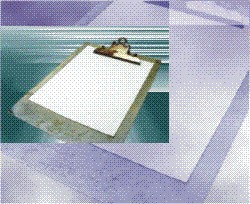| www.gosodipo.com | ||||||
| Home | Feedback | Search | About Us |
 |
||
 |
||||||
| Services | Partners | Seminars | News | Publications | Newsletters | |
 |
Seminars | |||||
|---|---|---|---|---|---|---|
A REVIEW OF THE JUDICIAL AND ADMINISTRATIVE RESPONSE TO PIRACY AND COUNTERFEITING .by DR. BANKOLE SODIPO (Ph.D. London) at the seminar on THE RECENT DEVELOPMENTS ION THE REGULATION OF FOREIGN INVESTMENTS AND INTELLECTUAL PROPERTY RIGHTS IN NIGERIA held at The George Washington University Law School Washington DC. USA on Thursday May 16, 2002 Chair: Hon. Marybeth Peters US Copyright Register and Deputy Librarian of Congress NIGERIA'S JUDICIAL SYSTEM Supreme Court I Court of Appeal I State High Courts vs. Federal High Court - Sharia Court of Appeal I Magistrate Courts- Sharia Courts
Traditions of the English Common Law
INDEPENDENCE OF THE JUDICIARY - confirmed - Increasing boldness in the pronouncement of courts - Supreme Court downwards - increased confidence of the investing public to challenge the government - Federal Government & Non-littoral states vs. Littoral States - Electoral Act case - Property taxes by Lagos State - TV Africa vs. Nigerian Broadcasting Commission CORRUPTION & FRAUD Strong Signals against corruption The Anti-Corruption Commission - prosecution of offenders Resignation of Judges and State Commissioners 419 - Advanced Fee Fraud - prosecution of offenders 419 " need for stronger measures - international cooperation in digital age COPYRIGHT 1st copyright statute in Nigeria -1911 English Copyright Act in 1912 - Applicable law today - Copyright Act 1988 - Treaties - Berne, UCC, Rome and TRIPS - Acknowledged by the IIPA in 1989 to be a good law - Nigerian courts have confirmed the following copyright principles among others:
1. Ownership of copyright in a work is different from ownership of the work 2. The copyright in architectural drawings can prevent the construction of another building 3. Employees may own copyright in a work unless there is a written contract to the contrary 4. Foreign works from treaty listed countries are protected 5. Books, software, music, sound recordings, films, artistic works, broadcasts are protected 6. Serialization is an infringement - it is not the same thing as a book review 7. Pirates can be sued in their business name TRADEMARKS - 1st Trademark statute, Trademarks Ordinance of 1901 - 2nd, the 1914 Trademarks Ordinance - Applicable law today - Trademarks Act, 1965 - Judgments on trademarks and passing off have been handed down in Nigeria since 1903 - Since 1912, Nigerian courts had affirmed that, the function of trademark was for "protecting not only a vast illiterate population little acquainted with pictorial representations, but also the pioneers of trade who have earned a reputation among these illiterate folk by the quality of goods associated with some recognised mark such as a particular bird, animal, tree or other object". - Trap Orders are allowed - Distributors of counterfeit products liable - Ignorance is no excuse - SOME CASES - VIAGRA - COLGATE - TEXACO ADMINISTRATIVE PROBLEMS WITH TRADEMARKS - Trademarks Registry - lack of independence - budgetary constraints - Proposed Intellectual Property Commission - Trademarks Journal - Trademarks Opposition Hearing - Effect of Administrative Problems - Acceptance Forms formerly treated as registration PATENTS AND DESIGNS - 1st Patents statute - Registration of UK Patents Ordinance, 1925 - Applicable law - 1970 Patents and Designs Act - Formal examination - 20 years term - Little litigation - Rights have been enforced where owners prove their case CRIMINAL SANCTIONS AND BORDER CONTROL - The Counterfeit and Fake Drugs Act, 1989 - The Trade Malpractices (Miscellaneous Offences) Decree, 1992 - A Consumer Protection Council by the Consumer Protection Council Decree, 1992 - Nigerian Copyright Commission - Copyright Inspectors with powers to arrest and prosecute - NAFDAC - powers to arrest and prosecute offenders for counterfeit food and drugs - New rules for Border Control by NAFDAC and Copyright commission - Absence of border control rules for general trademarks LEVEL OF COUNTERFEITING - RESPONSE OF OWNERS - change of packaging - Fold arms - Weak strategy REMEDIES AGAINST COUNTERFEITING AND PIRACY - Injunctions - ex parte - Anton Filler type inspection and seizure orders - Why some have failed in obtaining or enforcing the orders - Class actions - the developments |